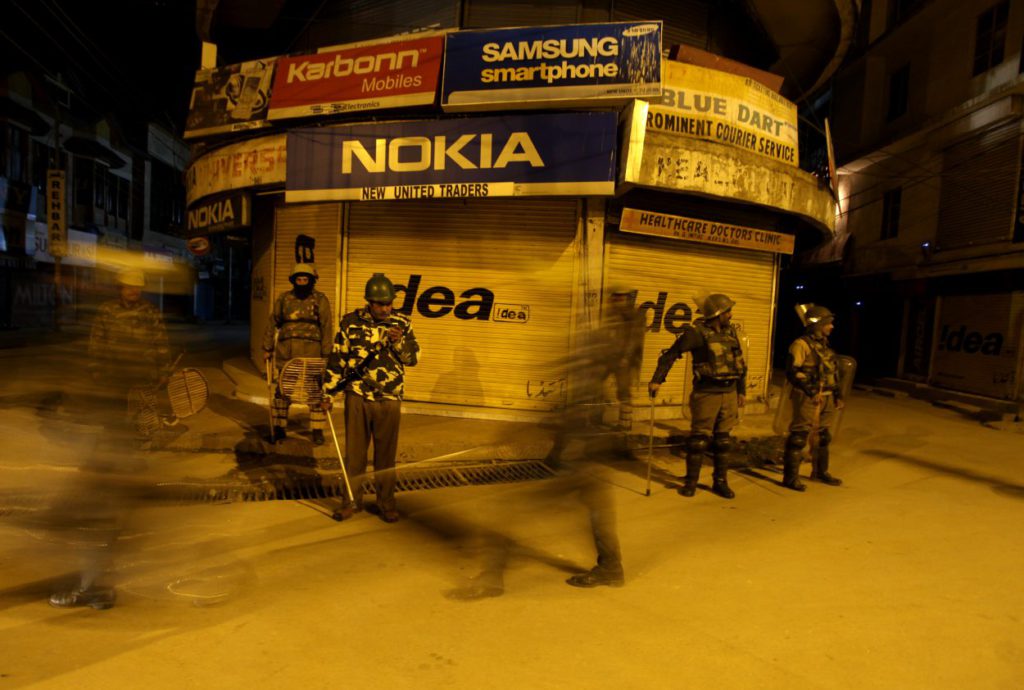
With India changing domicile law, Kashmir’s indigenous population faces risk of dispossession, possible war crime

As an unelected, bureaucratic government in India-administered Kashmir starts granting Kashmiri domicile certificates to Indian citizens, the replacement of the Kashmiri people has begun.
Instead of learning from Nehru’s misadventure, successive Indian leaders have spent the last seven decades gradually “integrating” Kashmir further, embellishing their own actions to forcibly realise a still-born objective. Meanwhile, Kashmir’s resistance remains defiant. In picture, Indian paramilitary enforce a curfew in Srinagar after the hanging of Afzal Guru in New Delhi’s Tihar jail. File photo by ABID BHAT Yesterday, Navin Choudhary, a civil services officer, became the first Indian in a batch of 25,000 people to be certified as a “domicile” of the disputed region of India-administered Kashmir. Born in the Indian state of Bihar and officially now identified as a domicile of the “union territory,” Choudhary has worked in the Jammu and Kashmir government for manyyears. It was a much expected development after a string of illegal and unconstitutional changes imposed by the Indian state upon what was until last year a semi-autonomous state. Last year after India…
Related Posts


Donald Trump’s Master Economic Plan I Opinion by Yanis Varoufakis




